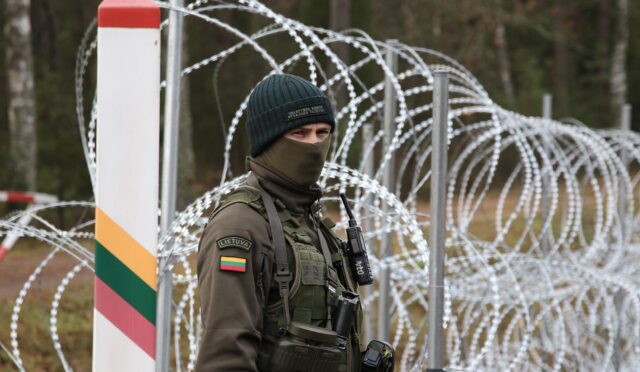Arab Leaders Gather in Cairo for Gaza Reconstruction Talks
On Tuesday, Arab leaders convened in Cairo to discuss alternatives to US President Donald Trump’s controversial plan for Gaza, which has drawn widespread criticism for its implications regarding the Palestinian population. Just hours before the summit began, Israel reiterated demands for what it termed the “full demilitarization” of Gaza, a request that was swiftly rejected by Hamas, which classified disarmament as a “red line.” This Arab League summit, which revolves around reconstruction efforts, comes in the wake of renewed support from Israeli Prime Minister Benjamin Netanyahu, who labeled Trump’s proposal as “visionary and innovative.”
The ongoing conflict has united Palestinians and Arab nations in rejecting Trump’s framework, voicing strong opposition to any measures that would forcibly displace Gazans. The United Nations has estimated that the costs for Gaza’s reconstruction could soar beyond $53 billion, an urgent necessity following the destructive aftermath of the war triggered by Hamas on October 7, 2023.
Arab Foreign Ministers Meet to Create a Reconstruction Plan
In a private meeting on Monday, Arab foreign ministers gathered in Cairo to craft a reconstruction plan for Gaza that respects the rights of its residents. An anonymous source from the Arab League indicated to AFP that this plan, focused on rehabilitation without displacement, would be put forward for approval by the leaders at Tuesday’s summit. The meeting was attended by several prominent heads of state alongside top foreign ministers, including Syria’s interim President, Ahmed al-Sharaa.
The opening remarks are expected from Egyptian President Abdel Fattah al-Sisi and Bahrain’s King Hamad, according to the Arab League’s published schedule. Their participation underscores the urgency of finding a stable solution to the crisis affecting Gaza.
Trump’s Controversial Gaza Proposal Viewed with Disdain
Trump’s initial suggestion that the US would “take over” Gaza and transform it into the “Riviera of the Middle East” was met with international outrage. His proposal included relocating Palestinian residents to neighboring Egypt and Jordan—a notion that has since attracted significant backlash. In a somewhat softened tone, Trump later claimed he was “not forcing” the plan, a stance that experts warn may still violate international law.
At the summit, Israel’s foreign minister, Gideon Saar, reiterated calls for Gaza’s total demilitarization and the removal of Hamas, setting conditions for progressing to the next phase of the ceasefire agreement. However, Hamas leader Sami Abu Zuhri dismissed this demand, stating that discussions surrounding the group’s armament were out of the question, calling them a “red line”.
The Situation in Gaza and Historical Context
Since Hamas took control of Gaza in 2007, the region has lived under a harsh blockade imposed by Israel, with many critics likening it to an open-air prison. In a parliamentary address, Netanyahu expressed a desire to provide real choices to Gaza’s residents, implying that it is time for them to have the freedom to leave. This perspective has found support among far-right elements within Netanyahu’s coalition, including Finance Minister Bezalel Smotrich, who advocates for Israel to establish full sovereignty over the territory.
The Cairo summit holds significant weight in the ongoing stalemate between Israel and Hamas regarding the fragile ceasefire that began on January 19. While Israel has expressed support for extending the ceasefire’s initial phase, Hamas is pressing for a transition to a more permanent resolution.
Warnings and Consequences Surrounding the Ceasefire
During a parliamentary session on Monday, Netanyahu warned Hamas of dire “consequences that you cannot imagine” should they fail to release hostages still held by militants. Senior Hamas official Osama Hamdan countered, claiming that Israel was undermining the ceasefire efforts and labeling their push for an extension as a blatant evasion of negotiations for the subsequent phase.
As the initial phase of the truce came to an end, Netanyahu’s office announced intentions to halt all entry of goods and supplies into Gaza. This declaration raised alarms and drew criticism from key mediators like Egypt and Qatar, alongside various regional governments and even some of Israel’s allies.
The Humanitarian Crisis in Gaza
The ongoing war has resulted in catastrophic humanitarian conditions in Gaza, with significant destruction of infrastructure, mass displacement, and dire food shortages. Since the unprecedented Hamas attack in 2023, over 1,200 people have died, mostly civilians, while Israel’s military reprisals have reportedly killed nearly 48,400 Gazans, contributing to a growing crisis of humanitarian proportions.
Out of 251 individuals captured during the Hamas attack, 58 remain in Gaza, including 34 whom the Israeli military has reported as deceased. The ongoing loss of life raises urgent questions regarding the effectiveness of any ceasefire agreement and underscores the catastrophic humanitarian toll of the conflict.







